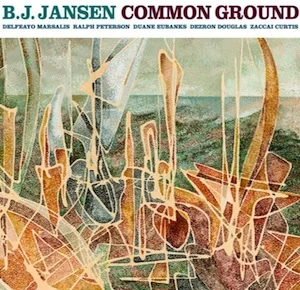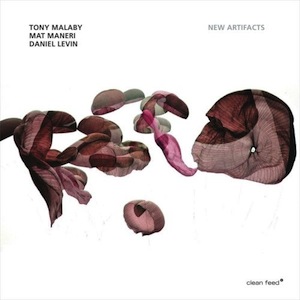Label/Year: ECM, 2017
Lineup - Louis Sclavis: clarinets; Dominique Pifarély: violin; Vincent Courtois: cello.
French clarinetist, Louis Sclavis, emerged as a leader in the 80s, but it was during the 00s that his music got more attention with seductive records like L'affrontement des Prétendants, Dans La Nuit, Le Phare, and L'imparfait des Langues. In his voluminous musical universe, styles such as post-bop, avant-garde, and modern chamber jazz are pretty common.
His new record, Asian Fields Variations, recorded with two long-time associates, violinist Dominique Pifarély and cellist Vincent Courtois, is now available on ECM and wields interesting chamber jazz with punctual dashes of world music. It’s curious to notice that the violinist and the cellist had shared numerous musical experiences with Sclavis before, but the trio had never recorded together.
“Mont Myon” comes wrapped in amiable tones, encouraging everyone to breathe easily. The levels of tension and contrapuntal interaction are slightly increased during the middle section, but the threesome returns to literate wintry soundscapes for the finale, conjuring up memories of John Surman and Tigran Hamasyan.
The following three small pieces, “Done and Done”, “Pensée Furtive”, and “Figure Absente” were composed and played solo by Courtois, Sclavis, and Pifarély, respectively.
In “Asian Fields” we have a violin-cello ostinato in the background while Sclavis is on the loose. The cycle eventually breaks into an Oriental passage, coaxing Courtois to intervene on his own. His sounds bring the world fusion of Rabih Abou Khalil into mind, a fact that is not so strange if we think that he and Pifarély have collaborated with the Lebanese musician in the past. The initial ostinato is reframed, only this time with Pifarély and Sclavis switching positions.
On “Fifteen Weeks”, each member of the trio revolves around a melodic phrase that is brought up in a sequential way. This tune, acquiring a cheerless composure, contrasts with the vivacious avant-gardish sceneries of “Cèdre” and the more-Western-than-Eastern crusades of “Les Nuits”.
Sclavis, Pifarély, and Courtois carve their own niche of followers on the strength of clear ideas and congruous interplay. The variety of tones and styles are preponderant in the final result, which should attract devotees of modern creative jazz, as well as world and classical music.
Grade B+
Favorite Tracks:
01 – Mont Myon ► 05 – Asian Fields ► 09 – Cèdre







































